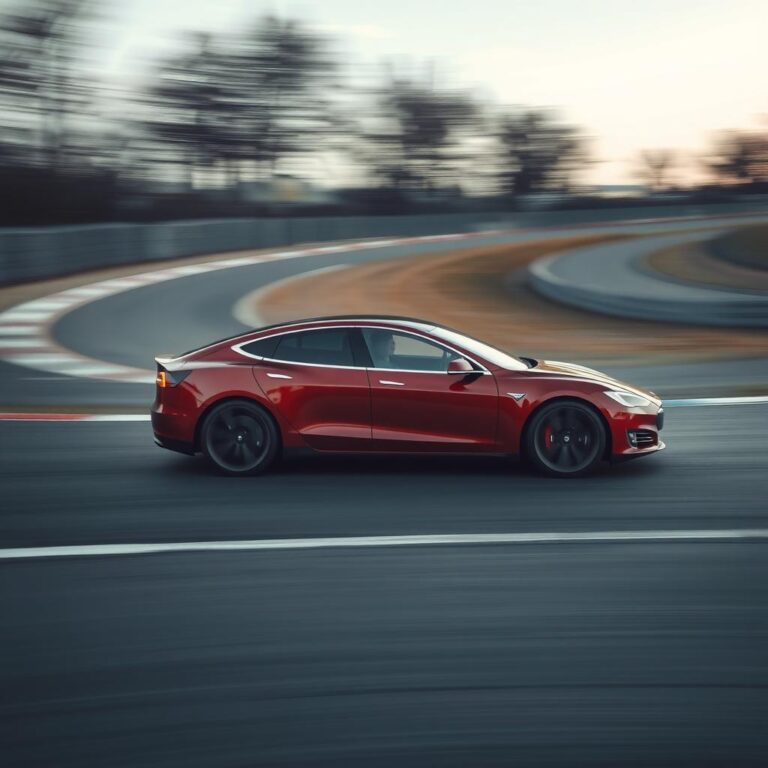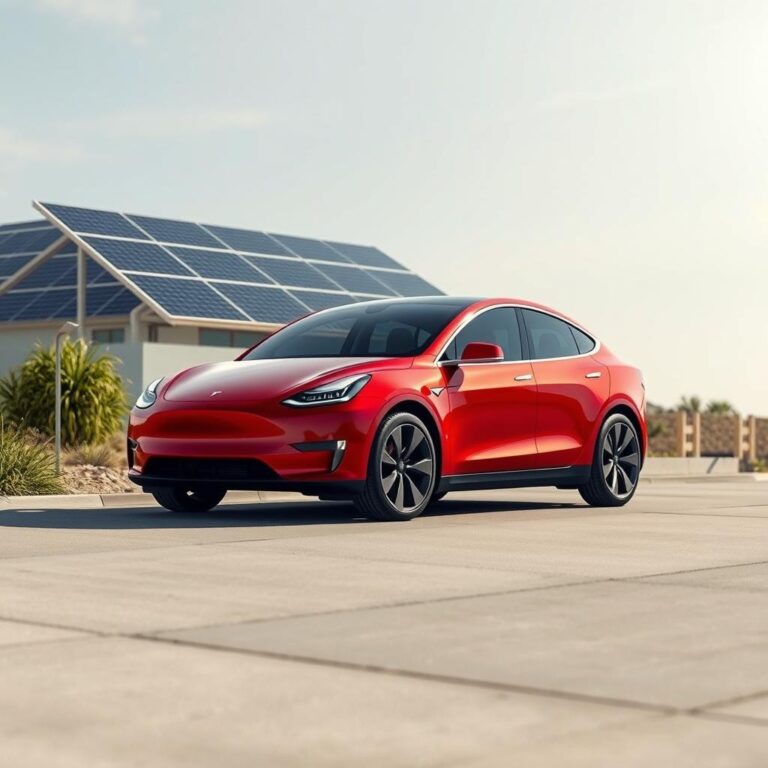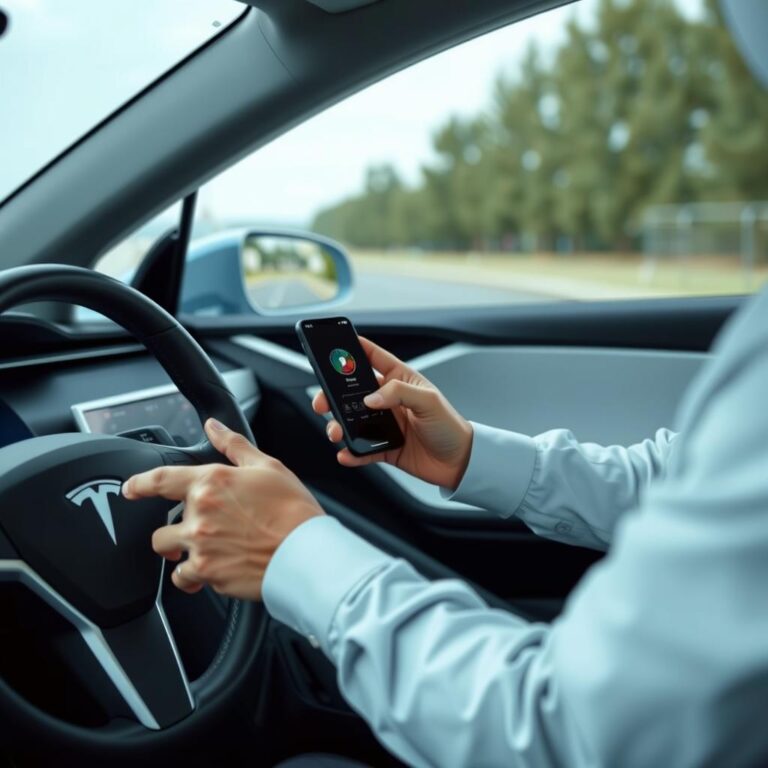Are Tesla Cars The Future?
Are Tesla Cars the Future? A Look Ahead
As electric vehicles (EVs) continue to gain popularity, many people are asking, “Are Tesla cars the future?” Tesla has been at the forefront of the electric vehicle revolution, changing the way we think about cars, energy, and transportation. But what does the future hold for Tesla, and will it continue to lead the way in the coming years? Let’s explore Tesla’s innovations and its role in shaping the future of the automotive industry.
The Rise of Electric Vehicles and Tesla’s Role
Over the past decade, electric vehicles have gained significant traction, moving from niche products to mainstream options. Tesla, under the leadership of Elon Musk, has been a pioneer in this shift, creating vehicles that combine cutting-edge technology, impressive performance, and sustainability. But Tesla isn’t just about electric cars—it’s about revolutionizing the entire transportation ecosystem.
When we ask if Tesla cars are the future, we have to look at the broader picture. Tesla’s vision extends beyond electric cars to include innovations in autonomous driving, energy solutions, and sustainable living. It’s clear that Tesla isn’t just focused on making the best electric car; they’re working toward a future where clean energy and innovation are central to how we travel and live.
The Environmental Impact of Tesla Vehicles
One of the key reasons why Tesla is often considered the future of cars is its commitment to sustainability. Traditional gasoline-powered cars contribute to pollution, greenhouse gases, and dependence on fossil fuels. Tesla, on the other hand, creates electric cars that are environmentally friendly, producing zero tailpipe emissions and reducing overall carbon footprints.
As the world faces the challenges of climate change, the shift to electric vehicles is critical. Tesla’s electric cars are an important part of the solution to this problem. By making EVs mainstream and accessible, Tesla is playing a crucial role in reducing the automotive industry’s environmental impact. In the future, as more people adopt electric vehicles, we can expect even greater environmental benefits.
Self-Driving Cars: The Future of Autonomous Driving
Another major area where Tesla is leading the way is in autonomous driving. While fully autonomous vehicles are still in development, Tesla’s Autopilot and Full Self-Driving (FSD) features are taking the first steps toward the future of self-driving cars. Tesla’s vehicles are already capable of handling many aspects of driving, including steering, acceleration, braking, and lane changes.
While Tesla’s self-driving technology is not yet perfect and requires the driver’s attention, the company is constantly improving it. With over-the-air software updates, Tesla’s cars are getting smarter and safer every day. Tesla’s long-term goal is to create fully autonomous cars that can drive themselves without human intervention. As this technology continues to evolve, it could radically change the way we think about transportation.
How Self-Driving Cars Will Change the Future
The potential for fully autonomous vehicles goes beyond just convenience. Self-driving cars could help reduce traffic accidents caused by human error, improve road safety, and increase mobility for people who are unable to drive due to age or disability. Additionally, autonomous vehicles could lead to more efficient use of roads, reducing congestion and making transportation more efficient.
As Tesla continues to refine its Autopilot and FSD systems, it’s likely that we’ll see widespread adoption of autonomous vehicles in the future. Tesla is positioning itself to be a leader in this space, and their vision of self-driving cars could become a reality in the coming years.
Are Tesla’s Innovations the Key to the Future?
Tesla’s vision isn’t limited to just cars. The company is pushing the boundaries of what’s possible in the energy sector as well. Tesla’s solar products and Powerwall systems aim to revolutionize how we generate, store, and use energy. These products, when combined with Tesla’s electric vehicles, could lead to a future where homes and cars are powered entirely by clean, renewable energy.
Tesla is working to integrate its products into a cohesive energy ecosystem, where solar energy is harnessed from rooftops, stored in batteries, and used to power homes and vehicles. This approach not only reduces reliance on fossil fuels but also creates a more sustainable and efficient way of living. With continued advancements in solar energy and battery storage, Tesla could play a central role in the global transition to clean, renewable energy.
Advancing Battery Technology: The Future of Energy Storage
A key factor in the success of Tesla’s electric cars and energy products is its advancements in battery technology. Tesla has made significant strides in creating batteries that are more efficient, longer-lasting, and cheaper to produce. These improvements in battery technology will be essential for the widespread adoption of electric vehicles and renewable energy solutions.
In the future, as Tesla continues to innovate and improve battery technology, we can expect even more powerful and cost-effective energy storage solutions. This could lead to more accessible electric vehicles, better energy storage systems, and a greater reliance on clean energy sources.
Is Tesla the Future of Transportation?
So, are Tesla cars the future? The answer seems to be yes. Tesla is not only making waves in the electric vehicle market but also reshaping the entire transportation and energy sectors. With innovations in electric cars, self-driving technology, and renewable energy solutions, Tesla is paving the way for a more sustainable, efficient, and autonomous future.
While there are still challenges to overcome, such as achieving full autonomy and addressing supply chain issues, Tesla’s vision for the future is a powerful one. As the company continues to push the boundaries of what’s possible, it’s clear that Tesla will play a major role in the future of transportation.
In the coming years, we can expect Tesla to lead the way in the development of electric vehicles, self-driving cars, and clean energy solutions. If Tesla’s innovations continue at their current pace, the future of transportation could look very different from the one we know today.

The Impact of Tesla’s Role on the Automotive Industry
How Tesla Is Shaping the Future of the Car Industry
Tesla’s impact on the automotive industry goes far beyond just producing electric cars. The company has influenced major car manufacturers to accelerate their electric vehicle (EV) development and rethink their strategies. As one of the first automakers to produce a commercially viable electric car, Tesla has proven that EVs can be both practical and desirable.
Competition Drives Innovation
One of the most significant ways Tesla is shaping the future is by pushing other car manufacturers to step up their game. In the past, many traditional automakers were hesitant to embrace electric vehicles. But as Tesla’s market share grew and consumer demand for EVs increased, legacy automakers like Ford, General Motors, and Volkswagen have followed Tesla’s lead and made substantial investments in electric vehicle technology.
By forcing competitors to innovate, Tesla is accelerating the global transition to electric mobility. The company’s success has encouraged other manufacturers to not only develop their own EVs but also improve their infrastructure, such as charging networks and battery technology, which will benefit the entire EV ecosystem.
The Rise of Affordable EVs
Tesla’s ability to make electric vehicles that are both high-performance and practical has changed the narrative around EVs. Previously, electric cars were often viewed as expensive or impractical alternatives to gasoline-powered cars. Tesla’s focus on building vehicles like the Model 3 at a relatively affordable price point has helped bring EVs into the mainstream.
The price of electric vehicles will continue to drop as more companies, including Tesla, improve manufacturing processes and battery technology. This shift will make EVs more accessible to a larger segment of the population and could ultimately lead to the complete phase-out of internal combustion engine (ICE) vehicles. The future of affordable EVs looks bright, and Tesla is at the forefront of this transition.
The Global Push Toward Sustainable Transportation
The future of Tesla is also closely tied to the global push for sustainable transportation. Governments around the world are offering incentives and establishing stricter emissions regulations to promote the adoption of electric vehicles. Many countries are setting targets to phase out the sale of new gasoline-powered cars in favor of electric alternatives.
Government Policies Supporting EVs
Countries such as Norway, the United Kingdom, and parts of California are leading the charge, offering subsidies, tax credits, and charging infrastructure to encourage the adoption of electric vehicles. These policies, combined with the ongoing innovation from companies like Tesla, are accelerating the transition to clean energy transportation.
As more countries adopt favorable policies for EVs, Tesla’s vehicles will likely become more ubiquitous on the roads. The company’s ability to adapt to different regulatory environments and lead the development of EV-friendly infrastructure gives it a significant advantage in the global market.
The Future of Tesla’s Energy Ecosystem
Tesla’s vision for the future extends far beyond electric cars. The company has invested heavily in clean energy solutions, including solar panels and energy storage systems, to create a sustainable ecosystem. Tesla’s goal is not just to sell electric vehicles but to transform how we generate, store, and use energy.
Solar Energy and the Tesla Powerwall
In addition to EVs, Tesla has developed solar products such as the Solar Roof and Solar Panels to harness energy from the sun. Tesla’s Powerwall system stores energy generated from solar panels, allowing homeowners to use renewable energy to power their homes and charge their electric vehicles. This creates a fully integrated energy system where renewable energy powers your home, your car, and even your daily activities.
The integration of renewable energy and electric transportation is a key part of Tesla’s mission to accelerate the transition to sustainable energy. As Tesla continues to expand its solar and energy storage solutions, the company is helping pave the way for a future where homes and businesses can rely on clean, renewable energy for all of their needs.
Will Tesla Remain the Leader in the Electric Car Market?
While Tesla has been the dominant player in the electric vehicle market, competition is intensifying as other manufacturers ramp up their EV offerings. Traditional carmakers like Ford, BMW, and Volkswagen are investing heavily in electric vehicles, and new entrants like Rivian and Lucid Motors are entering the market with innovative designs and technologies.
Can Tesla Maintain Its Edge?
One of Tesla’s biggest advantages is its ability to innovate quickly. Tesla’s over-the-air software updates allow the company to continuously improve its vehicles without requiring owners to visit a dealership. This gives Tesla a competitive edge over traditional automakers who still rely on outdated systems of distribution and service.
Additionally, Tesla’s energy ecosystem—including solar products, the Powerwall, and electric vehicles—sets it apart from other automakers. Tesla’s vision of creating a sustainable energy and transportation network is unique, and it could continue to differentiate the company from other EV manufacturers in the coming years.
Conclusion: Are Tesla Cars the Future?
So, are Tesla cars the future? The evidence suggests that Tesla is playing a leading role in shaping the future of transportation and energy. With its innovative electric vehicles, advancements in autonomous driving, and commitment to clean energy, Tesla is helping pave the way for a more sustainable, efficient, and autonomous future.
While Tesla faces competition, its ability to innovate quickly and integrate cutting-edge technologies into its vehicles and energy systems makes it a key player in the future of transportation. As more consumers and governments embrace electric vehicles, Tesla’s leadership in the EV market, combined with its vision for sustainable energy, will likely ensure its position at the forefront of the future of cars.



